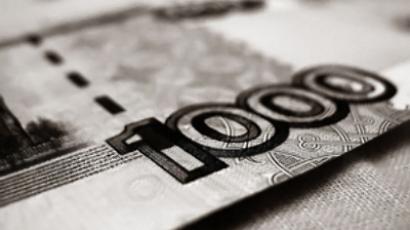Renewed push on ending US dollar hegemony

The US dollar should be cast off as the world's main reserve currency according to a recent U.N. report, with a number of states including Russia and China calling for a new reserve currency system.
Dmityr Medvedev’s opening words at the St. Petersburg International economic forum were that the world has changed with the economic centre of gravity has shifting. French President Nicholas Sarkozy added that it was time that the rules that govern the global financial system should catch up.
“We must all think of the foundation of the new international financial system. The current one is based on a Bretton-Woods concept dating back to 1945. Are we still in 1945? The obvious correct answer is NO. And I told President Medvedev that Russia and France should discuss this, to assist to the creation of the new monetary system.”
Economists say the overdependence on the US dollar and the Euro should come to an end. But Vadim Kommisarov, Executive Director of Globex, says simply adding the Rouble or the Yuan to existing reserve baskets or contracts won’t protect against future risks, and that diversification should go much further.
“Diversification is necessary. In a multi-polar world when you have a lot of countries doing business internationally, a diversified currency basket works better. It lets you reduce the risk of fluctuating currency rates.”
China is gaining fast as a driver of the global economy with its GDP expected to grow 9.5% this year. Brazil and India too are gaining as manufacturing and IT services giants rebounding out of the economic downturn with impressive growth rates, while the developed economies remain mired in anemic growth and debt crises. Russia’s rebound has been sluggish so far but Ousmène Jacques Mandeng, Head of Public Sector Investment Advisory, at the Ashmore Group says it has other advantages in comparison with other BRIC nations
“It’s relatively easy to put money to work in Russia, very unlike India and China where it’s almost impossible. It’s basically a quota system that actually regulates investment there. The criticism that I’d have is that because domestic capital markets are not sufficiently developed, it’s actually quite difficult, and particularly in the fixed income space.”
Russian politicians and businessmen believe the size of the Russian economy should see it with a bigger role in a new international financial system. They are also working on making Moscow a bigger global financial centre by developing its still limited financial markets. This is expected to see the Rouble become a bigger part of the global trade system, and used more in bilateral contracts involving Russia, as well as, potentially a reserve currency for its near neighbours.
The BRIC nations are building new the structures required for new global financial centres, and believe the entire system needs to be enhanced to reflect their priorities. Embracing 46% of the world's population and a quarter of the Earth's territory Brazil, Russia, India and China are becoming a force to reckon with.













